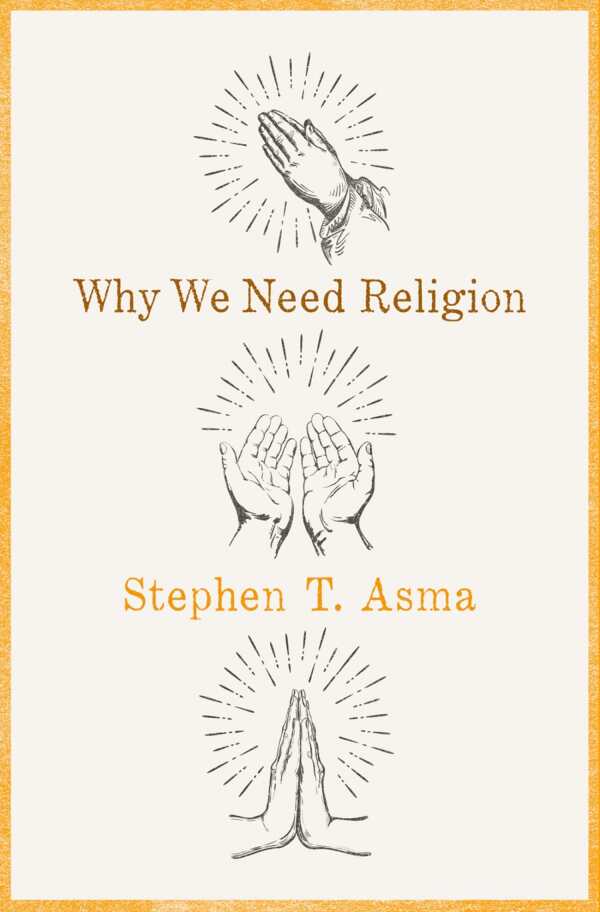Why We Need Religion
Stephen T. Asma’s Why We Need Religion describes itself as “a Darwinian defense of religious emotions and the cultural systems that manage them,” and that’s an accurate assessment. The book is less an endorsement of religion than a study of the role it plays in the human mind and how people have evolved to need both imperative and indicative inputs.
Asma is a philosophy professor by trade, and the book works as a philosophical exercise. He kicks things off with a visit to the infamous creationist museum in Kentucky, which depicts humans riding dinosaurs and concocts theories for how Noah fit them on the ark. While pointing out that these ideas are obviously incorrect, Asma tries to explain the faulty reasoning behind them and why creationists are not swayed by scientific proof. He uses this as a jumping-off point to look at other, less extreme examples of how people process religious information.
In the most compelling analyses, Asma is writing less about religion specifically and more about emotional adaptations. He takes an interesting look at grief, including the ways that nonhuman mammals react to death or to their offspring being taken away. Asma then details how humans have created religious (and even traditional but nonreligious) ceremonies as a way of coping with that grief—an emotional catharsis that doesn’t actually affect the outcome of death. He also explores lust and how religious and traditional mores have helped humans channel it differently than other mammals do.
In these ways and others, Asma posits that religion as a concept has played a central role in social cohesion, making it a key piece of civilization and an important step in the evolution of human consciousness. He makes an interesting argument, and Why We Need Religion raises a number of engaging questions about why mankind created its gods.
Reviewed by
Jeff Fleischer
Disclosure: This article is not an endorsement, but a review. The publisher of this book provided free copies of the book to have their book reviewed by a professional reviewer. No fee was paid by the publisher for this review. Foreword Reviews only recommends books that we love. Foreword Magazine, Inc. is disclosing this in accordance with the Federal Trade Commission’s 16 CFR, Part 255.

